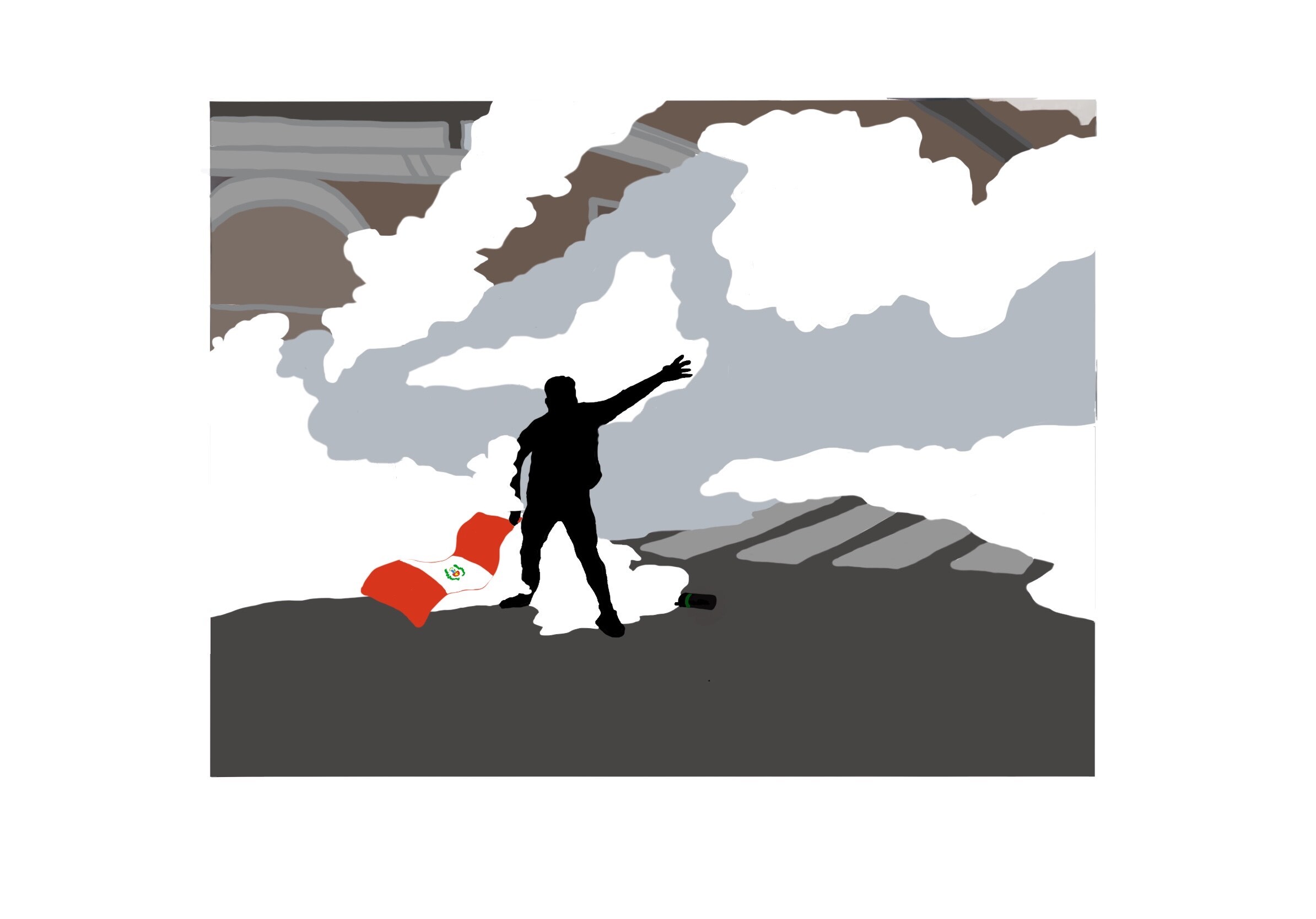The rats are at it again
November 13, 2020
 This
piece represents the opinion of the author
.
This
piece represents the opinion of the author
.
 Sydney Reaper
Sydney ReaperThe world held its breath this last week as the American election dominated headlines, news and the thoughts of millions of people. Democracy won once again in the United States as Joe Biden defeated Donald Trump in one of the most polarized elections in American history. Although I, too, celebrated the Biden victory with many of my friends, a recent coup d’état in my home country of Peru cut my celebrations short.
On November 9, the Peruvian Congress impeached and removed President Martín Vizcarra on the grounds of “moral incapacity” and named head of Congress Manuel Merino as his successor. On the surface, this looks like yet another democratic victory in the Americas. On that night, I even received many cheerful and good-willed messages about this event. Unfortunately, Vizcarra’s “impeachment” is a façade for a parliamentary coup which has plunged Peru, one of the Latin American countries most devastated by the COVID-19 pandemic, into uncertain political turmoil.
According to the Peruvian Constitution, a president can be removed by invoking either Article 113 or 117. The controversy lies with the second clause of Article 113, which cites “permanent physical or moral incapacity declared by Congress” as a reason for removal. The semantic trick used by Congress lies in the phrase “moral incapacity,” which in old Spanish legal terms actually refers to mental incapacitation (e.g. brain damage) that prevents a president from performing their duty and not to a metaphorical reading of immorality.
Congress reinterpreted the phrase “moral incapacity” in the trials of former autocrat Alberto Fujimori in the early 2000s from literal incapacitation to moral incapacitation in order to solve the greatest power crisis faced by the country at that time. However, this decision set a dangerous precedent most recently when it was used in 2016 against former President Pedro Pablo Kuczynski, who was accused of corruption charges from the Odebrecht Scandal and forced to resign.
Vizcarra, Kuczynski’s vice president, ironically came to power in this way. The major difference, in this case, lies in Peruvian people’s overall approval of Vizcarra in comparison to past ousted presidents like Kuczynski, Alejandro Toledo and Alan García. Although the move to remove Vizcarra from office is constitutional, it is not democratic since it does not represent the interests of the people.
The Peruvian Congress, a bastion of corruption and abuse of power for personal gain, fought a legislative war against Vizcarra because of his anti-corruption referenda, which resulted in a rare dissolution of Congress in 2019. According to Vizcarra, 68 members of Peru’s Congress have corruption charges against them, yet ironically, he is the one being ousted. Now, Congress has manipulated the Constitution to remove a leader approved by the Peruvian population, which begs the question about what the objective criteria are for “moral incapacitation.”
Manuel Merino and Congress’s power grab in Peru is yet another dark chapter of the power struggle between legislative and executive branches in Latin American governments, who through their wars have left the people to suffer. Even in a rampant COVID-19 pandemic, Peruvians have taken to the streets to protest the coup against the popular Vizcarra, with many fearing this squabble would put a stop to climate legislation, constitutional reforms and the checks and balances between Congress and the presidency. Peru’s election is scheduled for April 2021 but could be delayed by presidential decree because of the pandemic.
Peru’s political and economic future looks uncertain, but the demands from its population are clear. The Peruvian population, like many others in Latin America, demands a more equitable system from lawmakers who have done nothing besides abuse their power for personal gain. Similar to Chile’s protests last year, Peruvian citizens have marched onto the streets demanding constitutional reform. Although originally peaceful, the protests and demonstrations across the country have quickly turned violent as police have shot, gassed and attacked protesters. The economic damage has begun as the Peruvian sol, one of the most valuable currencies of any Latin American country, dropped to its lowest value in over 18 years.
I condemn the actions of the Peruvian Congress and the power grab by Manuel Merino. Merino does not and will not represent the interests of the Peruvian people, and having him in power six months before elections pose a major threat to our democratic process. This coup has made it abundantly clear that our lawmakers have put their personal and private interests above the safety of their people. As this story continues to develop, I urge you to pay attention to Peru’s political state because it represents a larger Latin American struggle against corruption and inequity left behind from colonialism. As democracy fights for its survival in Latin America again, I send my full support to the protesters.

Comments
Before submitting a comment, please review our comment policy. Some key points from the policy: